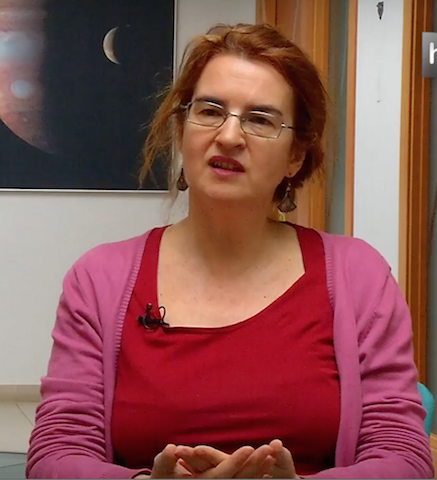
Dpt. Astronomía Extragaláctica
Instituto Astrofísica Andalucía
Glorieta de la Astronomía s/n
18008 Granada
Spain
Lourdes Verdes-Montenegro
Background
I worked on my PhD in Astronomy ("Star formation: Interaction with molecular gas") at the Instituto de Astrofísica de Andalucía (IAA) from 1988 to 1991 In 1992 I started working at the Department of Extragalactic Astronomy at IAA and performed a postdoc stay at the Observatoire de Marseille, where I collaborated with Albert Bosma and Lia Athanassoula, from the group "La dynamique des galaxies". There I focused on the study of isolated galaxies with external rings. We also collaborated on the study of Hickson Compact Groups, in particular on the My main science research topics for the last years have been the study of the interstellar medium in galaxy evolution, analyzing two extreme environments: isolated galaxies and compact groups, focused on the ISM study of Hickson Compact Groups in different evolutionary stages, with a special emphasis in strongly HI deficient groups. Currently, I am the only Spanish astronomer expert in the study of nearby galaxies by means of atomic gas observations. My work on compact groups solved the apparent contradictions about their star formation, demonstrating that it is not enhanced (Verdes-Montenegro et al 1998; 75 citations). Understanding this result is still subject of study by international groups through programs in e.g. XMM, Chandra, Herschel, Spitzer, CARMA, ALMA, using as a reference the evolutionary sequence proposed in Verdes-Montenegro et al (2001; 191 citations). I am PI of the international collaboration AMIGA (Analysis of interstellar Medium in Isolated Galaxies; http://amiga.iaa.es, Verdes-Montenegro et al 2005, 82 citations) involving since 2003 more than 15 research groups abroad. I have also made a special effort to complement basic research with activities aimed to strengthen the participation of Spain in instrumental projects. This includes:
In December 2016 I was invited to join the SKA Regional Centres Coordination Group (SRCCG) as an external advisor. Since October 2017, I am also co-chair of the "HI Galaxy Science" SKA Science Working Group.
AMIGA is currently funded by the national grant “AMIGA6: gas in and around galaxies. Preparation for SKA science and contribution to the design of the SKA data flow”, gathering 50% of the Spanish participation in SKA Pre-construction phase, corresponding to the three data processing oriented packages (see Participation of Spain in the SKA).
More information about these activities can be found in the following pages:
|



